Tell us about the decision to start your own bespoke distilling business on the back of the successful brewing company - why did you do it, and why was it the right time to do it?
The short answer is that we have always pursued new areas of hospitality that excite and challenge us, but we do so patiently and with care. Growth for us is never about chasing quick results. It is about taking our time, finding our rhythm and building something that lasts.
When we first bought pubs and hotels, our focus was simple: quality, consistency, cask beer and choice. That careful, steady approach laid the foundation for everything that followed. We spent five years refurbishing and extending the Sun Hotel in Lancaster, and 10 years getting the Duke of Edinburgh Hotel in Barrow-in-Furness to completion.
With Lancaster Brewery, it again took a couple of years before we truly found our stride. Once we did, it was by embracing the traditional values of brewing: whole hops, live yeasts and freshly milled malt, the way beer was made a century ago. It was a patient process, but one that gave us a lasting identity and a clear philosophy.

Phil Simpson says the lessons and disciplines learnt from brewing has helped the business move into producing spirits
The Lancaster Spirits Company was the natural next step, built on the same principle of slow success. It is about making spirits we are proud to be associated with, following uncompromising production methods, maturing with care, welcoming visitors and constantly striving to improve.
This patient, long-term way of working has become part of who we are. We do not buy and sell companies for quick gain. We grow them carefully. And nothing embodies the spirit of patience and slow success more clearly than whisky and spirits.
What were you looking to do as your point of difference?
In many ways, our approach is unusual because it is so traditional. From the outset, we decided we would not move into distilling unless every drop we produced was made entirely in-house. We never buy ethanol, we do not use syrups, packet yeast or even tap water. That principle runs through everything we make, from gin and vodka to whisky.
It still amazes me how few gins and vodkas in the UK are made without factory-produced ethanol. We are genuinely grain to glass, and that bloody-minded commitment to doing everything ourselves has been expensive and exhausting, but it defines us. Our whisky is being made in a way that resembles the nineteenth century more than the twenty-first, being highly labour-intensive, costly, painstakingly slow and at times frustrating.
Yet we are convinced that the effort will be obvious in every glass of whisky we eventually release. Even now, tasting the spirit, we laid down last year, the results are superb.
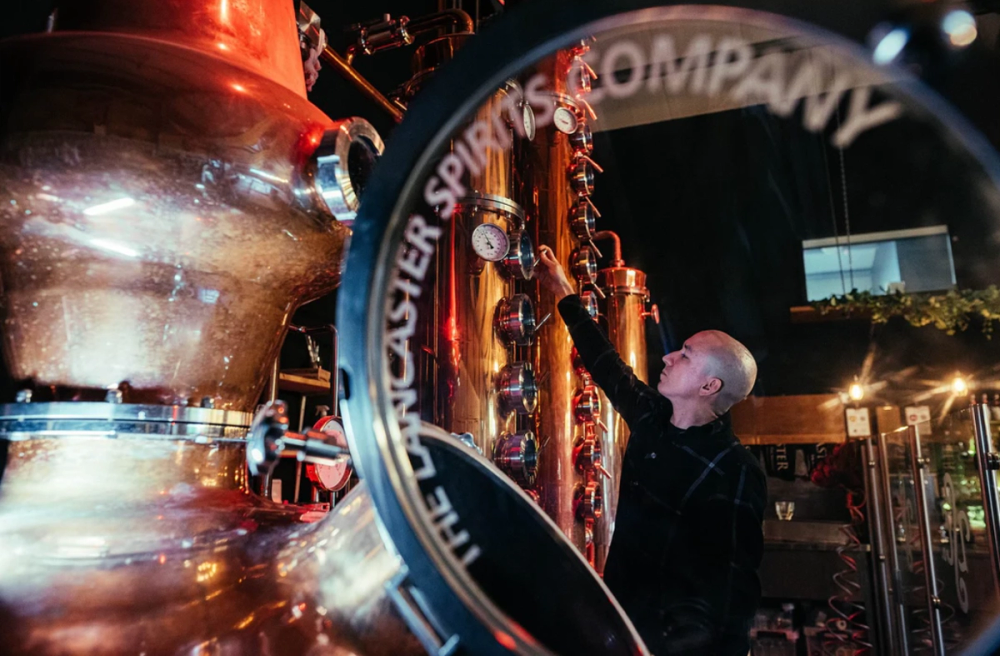
Lancaster Spirits Company's grain to glass philosophy ensures a focus on quality at every step of the distilling process
That unrushed, obsessive focus on quality is also reflected in our people. Bringing in Max McFarlane as our whisky consultant was a deliberate step to protect and nurture what we are building. Max tastes and advises on every single cask, ensuring its quality today and its potential for the future.
It is this patience, heritage and refusal to compromise that we believe truly sets us apart.
What lessons have you been able to take from the brewing side over into distilling?
It really comes down to the same ethos. At the brewery, we have built a reputation for producing consistently great beer, year after year. That does not happen by chance; it is the result of diligence and the relentless application of high standards by our head brewer, Will, and his team.
Our “Salsa Plus Beer” accreditation, which is exceptionally rare in the sector, is proof of that commitment.
That patient, methodical approach has carried straight across to the distillery. We use the skills of the brewery to produce the wash, with slow fermentation driven by our 200-year-old live yeast. The wash is then distilled steadily over five days to create the spirit. It is unmechanised, labour-intensive and demanding, but that is exactly the point.
Just as brewing taught us that quality comes from patience, consistency and care, distilling has reinforced it. Slow success has always been our way of working, and it is at the heart of every cask of whisky we are laying down.
There is a lot of crossover with what you are doing on the brewing side that you can utilise to make your spirits - what are they?
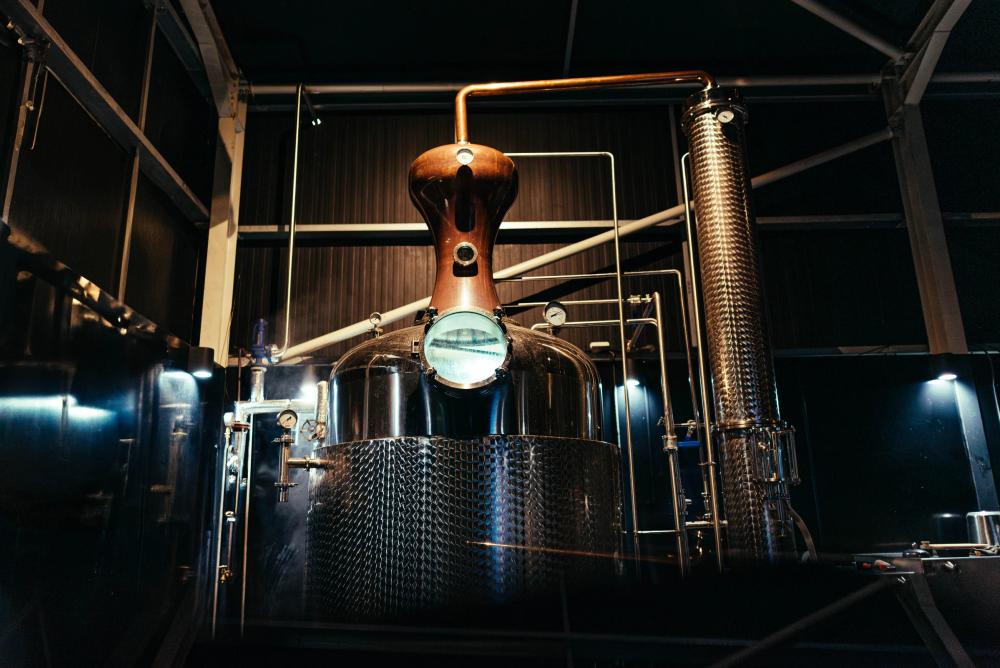
Lancaster Spirits Company has invested over £500m on its dedicated whisky room
There are many. We use the same water drawn from the aquifer that sits 90 metres beneath our brewery, the same live yeast which has been in continuous use for around two hundred years, and the same malted barley and grains that go into our beers. That combination gives us an extraordinary starting point. The wash we produce is rich, complex and of a quality very few distilleries can achieve, simply because most never begin with brewing expertise.
On top of that, we bring the discipline and quality assurance systems we developed at the brewery into the distillery. The standards that won our beer national recognition are now being applied to whisky and spirits, ensuring consistency at every stage.
So, the crossover is not just about ingredients; it is about mindset. The patience, precision and respect for tradition that have always defined our brewing are now also shaping the way we distil.
You follow a grain-to-glass philosophy and approach - can you explain what you mean by that and why it is so important to you?
For us, grain-to-glass means complete control and total responsibility. Every stage of production happens under our own roof, from milling the malt, rye and wheat to fermenting, distilling, maturing and bottling. Nothing is bought in and nothing is outsourced. The spirit in the glass has been created entirely by us, from the very first grain we mill.
It matters because it ensures integrity. We know the provenance of every ingredient, we know how it has been handled, and we know the care that has gone into every step. Provenance is everything. People who drink quality wine want to know where it comes from, who made it and what story lies behind it. We believe spirits deserve exactly the same respect. Provenance gives a drink its character and its heart.
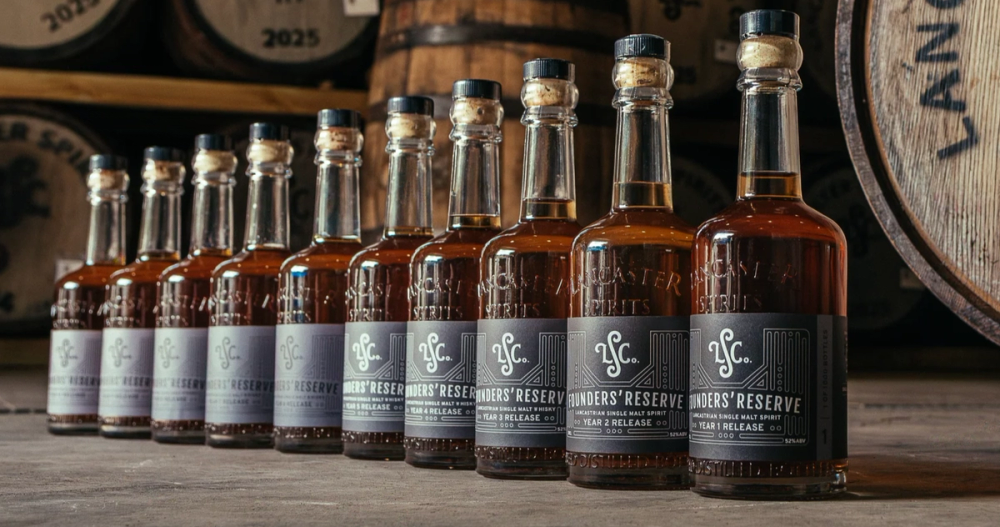
Lancaster Spirits Company says the fact the English whisky category is still so young means there are so many opportunities to grow
Grain-to-glass also speaks to sustainability. Our product miles are minimal. Everything is produced in one place, using our own well water, our own live yeast and our own grains. We are not dragging ingredients from across the country or around the world. That local, contained production makes our spirits distinctive and responsible.
Ultimately, grain to glass reflects who we are as a company: patient, principled and unwilling to compromise on quality.
You are making gins, vodkas and whiskies - why did you start with gins and vodkas first?
Whisky takes time. From the day it is distilled, it must mature in casks for years before it can even be called whisky, and longer still before it reaches the flavour we want. Gin and vodka, by contrast, can be enjoyed almost immediately.
Starting with them allowed us to put our ethos into practice, develop our skills on the stills and share something tangible with visitors while the whisky slowly matures.
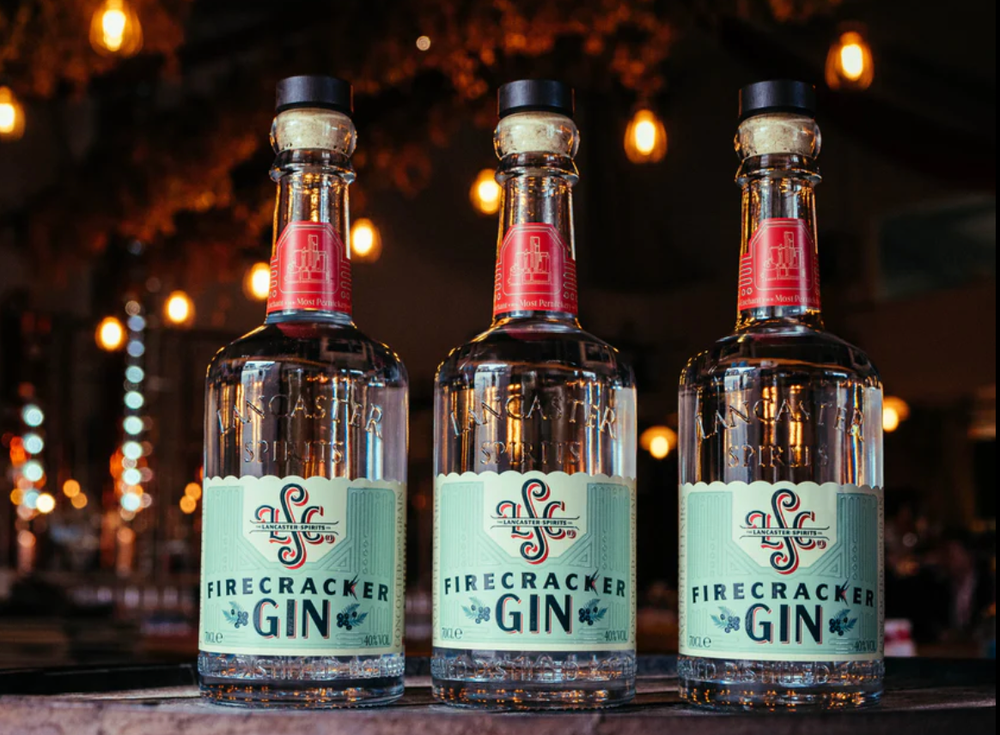
Lancaster Spirits Company was able to use the experience of making its range of gins and vodkas to move into whisky production
There was also a practical reason. Before laying down whisky, we needed to build a dedicated whisky room. This £500,000 project took nearly two years and is now the beating heart of our distillery, containing a large wash still, a full whisky production plantand our first cask maturation area. It is where the real patience begins, and it stands as a symbol of our long-term commitment to whisky.
In the meantime, gin and vodka gave us the chance to begin distilling, establish the Lancaster Spirits Company and prove that our grain-to-glass philosophy could deliver spirits with genuine character. Many producers buy in neutral spirit and flavour it, but by starting with our own grains, yeast and water, we created spirits every bit as distinctive as our future whisky.
In a way, the gins and vodkas are both a statement and a foundation. They show the quality of our spirit today while the whisky rests patiently in the casks.
What style of whisky are you looking to make?
Every whisky is unique, shaped by many factors such as the water, the malt, the yeast, the length of fermentation, the distilling cut points and the cask selection. For us, one of the most distinctive influences will be our unusually long fermentation, averaging around 130 hours, driven by the slower character of our live yeast. Added to that is the use of freshly milled malt from our own mill and the precision our distillers bring to the cuts.
Together, these choices create a base spirit that is nuanced, subtle, fruity and complex, with layers that will continue to deepen during maturation.
Cask choice is equally important. We only use first-fill casks, sourced from some of the finest suppliers in the world. Under the guidance of our whisky consultant, Max McFarlane, we are building a wood policy that includes bourbon, oloroso, Pedro Ximenez, Burgundy, Bordeaux, Port and other styles. Every cask is tasted and assessed regularly to track its development.
The result will not be a single style, but a range of characters shaped by these elements. What they will all share is depth, balance and a clear sense of identity born from patience, provenance and care.
What are your thoughts on the opportunities for English whisky?
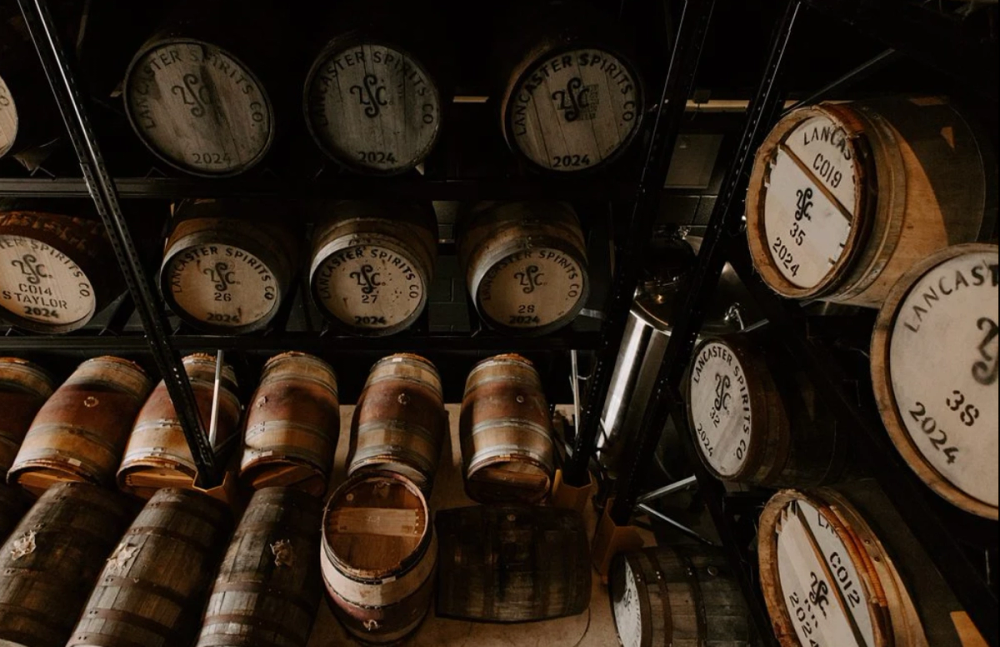
Lancaster Spirits Company uses a range of different casks from bourbon to sherry casks
English whisky is still young as a category, and that is what makes it so exciting. There is no weight of centuries of tradition, which gives producers freedom to be creative and ambitious while still working to very high standards. At the same time, Scottish whisky has been a huge influence. Scotland has set the bar for quality and consistency, and we are all learning from that while finding our own identity.
One of the great strengths of English whisky is scale. Most distilleries are small and independent, which makes them nimble and open to experimenting in ways that larger producers cannot. In Lancaster’s case, we are a decent size in English whisky terms, but compared with Scotland, we would be considered among the very smallest. That mix of being relatively substantial at home while tiny on the Scottish stage gives us both credibility and flexibility.
Critically, the individuals behind English whisky are marked by passion, zeal and sheer energy. These are innovators and owners, not simply managers. They are putting (and risking) everything into building something new, and their commitment shows in the spirit they are making.
The opportunity now is to bring these strands together. By taking inspiration from Scotland, by making the most of the agility that comes with being smaller, and by channelling the passion of the people involved, English whisky has a real chance to take its place on the world stage.
* You can find out more about Lancaster Spirits here.






























